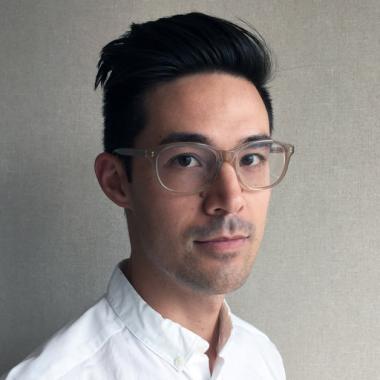Jonathan Jae-an Crisman is an artist and urban scholar whose work considers the intersections between culture, politics, and place. He is an Assistant Professor in Public & Applied Humanities at the University of Arizona College of Humanities.
Crisman will give a Flash Talk on “Visioning a Cooler City: Participatory Planning for Extreme Heat Resilience” at the NCSE Conference 2021 on Wednesday, Jan. 6, during the 1-2:30 PM EST block.
What does your research focus on? What questions are you trying to answer?
My research, done in collaboration with Dr. Ladd Keith and Dr. Gregg Garfin, focuses on the potentials of integrating public participation into climate resilience and adaptation strategies. Typically, these strategies are designed by experts and implemented from the top down, and we’re trying to figure out if we can increase political buy in from political leaders and the general public when new participatory processes are integrated into strategy design and implementation.
Who will be impacted by your work, and how?
I believe the work certainly has the potential to impact people who are living in arid climates, like we do in Southern Arizona – extreme heat is one of the deadliest climate risks, yet is also one of the least studied! And, in fact, if we are able to confirm the potential of integrating these participatory processes into climate resilience and adaptation strategies generally, then it could have a positive impact on the kinds of interventions that are undertaken across a wide range of geographies with different kinds of climate risks, like sea level rise or fires.
What are the biggest challenges you face in solving the problems your research aims to solve?
We live in a time where there is very little trust: a large segment of the population doesn’t trust science or scientists, people don’t trust political leaders, and very basic ideas that have the potential to make life better for everyone have become politicized. It’s a very thorny issue that gets into all kinds of questions about the fundamental nature of the human condition. But, in a small way, we’re hoping that by developing these kinds of participatory processes that allow for an open-minded space of learning and engagement, that we can rebuild some of that trust that is so fragile and difficult to develop.
What are you most excited to learn about and/or which session you are most excited to attend during NCSE Drawdown 2021?
I’m really quite excited about the whole event! It’s my first NCSE conference, and I’m looking forward to the new digital format and all the different kinds of presentation formats. Learning about the latest innovations in climate policy and technology will be very interesting.
What do you like to do outside of your research?
I am also an artist, so usually in my free time I’m playing around with different kinds of art making tools: synthesizers, cameras, screenprinters, and so on. I find that playing around in a more unstructured way can help me think through some of my research ideas too!


